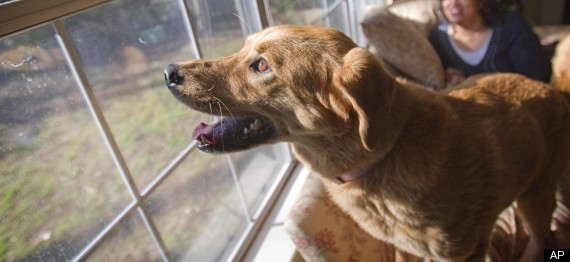
In this series, we have been talking about dogs and their extra-sensory-abilities. In the previous article (Sensible Dogs Part 1) we had looked at how dogs can sense: your intentions, fear and sudden change in your priority. Let’s continue with this article.
But before I continue, I want to clarify that some parts of this article are mere observation and may/may not be backed with appropriate statistical data to come to a concrete conclusion. Reader’s discretion is of utmost importance.
They can sense your illness
Even you might have heard stories of pet dogs’ helping their pet parents diagnose any illness by displaying weird behaviour. You might have also heard of stories where hospitals pet dogs, who patrol around the hospital, roaming about wards and other rooms and spending time with patients.
But how is it possible especially in an aspect where even the most sophisticated instruments and most experienced doctors feel helpless? Again this is due to their keen sense of smell. Here’s the fact: Dogs can sense VOCs that are given out by our body through sweat. Now what are VOCs? VOC is a term used for Volatile Organic Compounds. These include various chemicals that are even toxic, but are an important part of our metabolism.
How do only dogs smell VOCs? Not that only dogs smell them, even we can smell them too. The only difference is that they can smell a very large variety of VOCs while we can smell merely a dozen odd ones.
Dogs, depending on their breed, can have 10,000 to 1, 00,000 times stronger sense of smell. If I give you an example, you will understand the magnitude. A dog can smell a teaspoon of sugar in million gallons of water. This might seem unreal or fake to you but if trained properly, certain breeds, can sharpen their skills so-much-so- that they could even warn an epilepsy patient of an attack in the near future. Foreign countries have set up centres that train dogs to sense subtle changes occurring in human body that reflect the presence of a disease.
The next part is for pet parents that house 2 or more dogs at home.
They can sense when you are unfair with them
You wouldn’t believe that dogs do have a sense of justice. In an Austrian study, when two dogs performed an activity and only one of the two was rewarded, even when both of them did it correctly, the un-rewarded dog was seen to be agitated at the sight of the other dog. Their classic reaction was to lick their paws and scratch their ears in impatience.
Dogs have inherited their sense of justice from their ancestors- wolfs. Wolfs lived, ate, hunted and migrated in packs and they had some very strict rules. The one who failed to perform his duty was punished. He was refused of any rewards that the pack would get. Not just wolfs, chimps too worked in the same way.
But here, in case of the study, the dog which did perform his duty was denied reward and that triggered agitation.
Interestingly, if you could not manage to get two equal gifts, then that’s not a problem at all. For example if the first dog gets a dog-cookie and the second one gets an ordinary dog-biscuit, you would be surprised that both of them were equally happy with their respective prizes. I have already mentioned this in the previous article: Dogs are as intelligent as a 2 year old human kid. That is the reason why they cannot differentiate between a big/small or costly/cheap reward.
I can relate the next part of this article with my life. Angel has been living in my house since six years now, and she always knows when I am angry. She has a habit of tearing newspapers, books, or any paper; into pieces, when I’m away from home for long periods of time. When I come home, I see her drowning in a pile of paper bits
They can sense your anger
If you have spent some years with your pet now, then you will agree with me. Experienced pets know when their pet-parents are angry. Experienced pet-parents need not utter a single word to make their pet understand that they do not appreciate his behaviour.
Often, when you find your dog guilty of something, a simple gesture is enough to get him down on his knees, trembling and whining. (Here the intention is not to torture your pet but to send a strong signal that you won’t approve of such behaviour). You just need to keep your hands on your hip and give him a narrow-eyed stare.
But do not praise yourself for fixing the blame on him just because he shows signs of guilt. More often than not, dogs display signs of guilt just because you are angry. They do not know if you are angry because of them or because of something else. Since the source is unclear, dogs have no choice but to be guilty and blame themselves for your anger.
This can be disastrous, in some situations. When you are not sure if he’s guilty and you punish him (by anger), and if this happens repeatedly, your dog is bound to get undisciplined and frustrated. Your inconsistent behaviour can create an impression in the dog’s mind that you are unfair to him. (I have already talked about the sense of justice in the previous part of this article).
A sincere request all pet-parents: Please do not reprimand your pets before you are absolutely sure that your dog is guilty. This can plague your relationship with him and lead to various behavioural problems, ultimately leaving you with no choice but to abandon your pet. Please do not let this happen to you pet.
The next article in this series would talk about some other emotions/feelings/attitude that dogs comprehend and react to.






